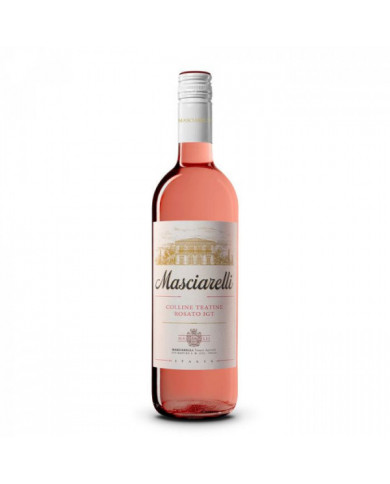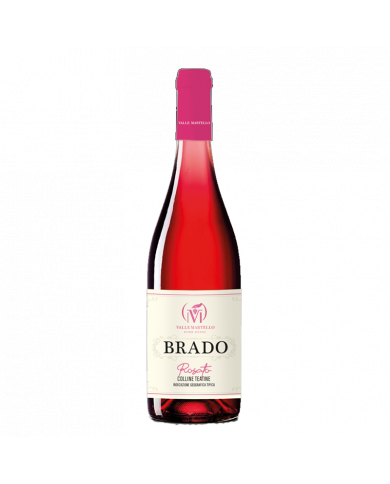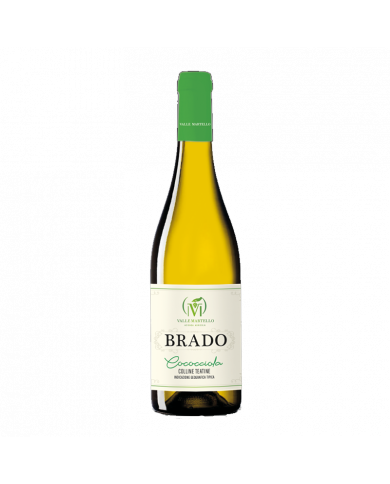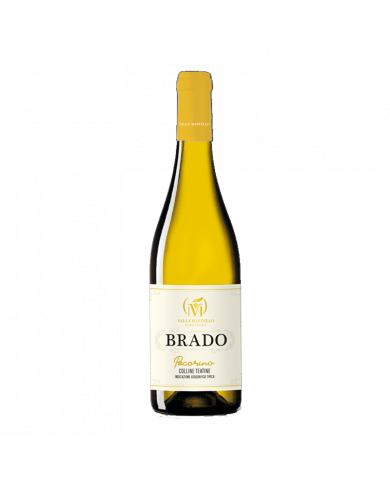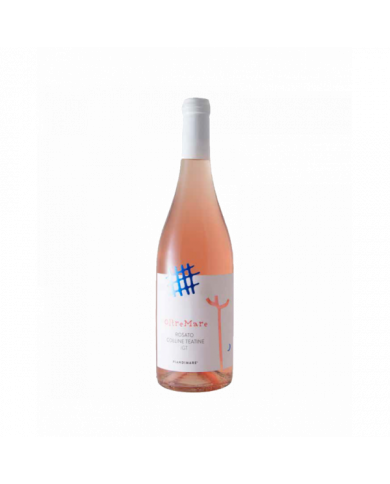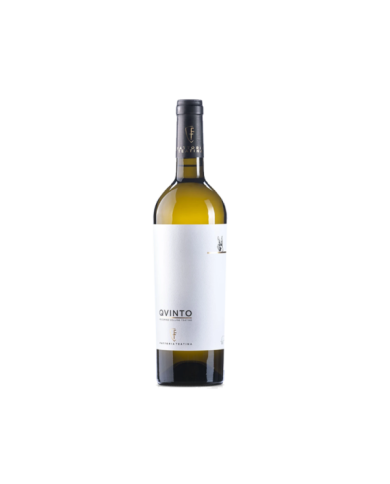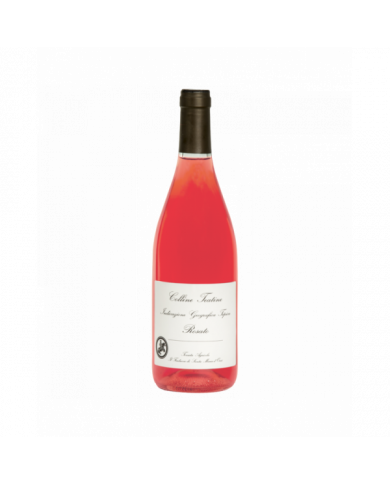We now have the new Piandimare white wine. Despite the strong vocation for red wines, after the experience with ros├®s, our cellar proves to be a great interpreter of the territory even with white berried grapes such as Pecorino, a typical Abruzzo vine. Pecorino grapes are harvested in the early hours of the morning , during the second ten days of September. The grapes are softly pressed and then fermented at a controlled temperature in steel tanks.On the nose our Pecorino opens with great aromas of white peach, pear, pineapple, fuji apple and acacia flowers. It is perfect for an elegant aperitif with a selection of soft and semi-soft cheeses accompanied by spicy vegetables.
The Brado ros├® is obtained from the soft pressing of red grapes. It has a pink color with delicate reflections. The nose shows elegant aromas of red fruit. It has a pleasant, fresh flavor, with a good aromatic persistence. It goes perfectly with fish soups and grilled fish. Ideal with pizza.
First example of vinification in purity of the native Abruzzo vine Cococciola. In the choice of making the Cococciola wine there is the desire to enhance our territory, that of the Teatine hills, where this grape variety is at its best. It is a wine with intense and ample aromas, ranging from floral to tropical fruit. It is a multifaceted white wine, with great freshness, ideal as an aperitif, with sushi, fish dishes, first courses and cheeses.
Pecorino Brado is a wine of great structure. It has a bright straw yellow color with golden reflections. The aromas of this wine include yellow pulp fruits, peach in particular. The evolution in the glass is slow and progressive, up to mineral notes. On the palate the taste is full and persistent with an elegant finish. Excellent with important first courses, roasted fish, white meats and cheeses.
Red berried grapes of the territory, harvested and pressed immediately without maceration. Vinified at low temperature. After vinification, the wine ages for 6 months in steel in order to harmonize and enhance its varietal aroma characterized by aromas of pink petal flowers, banana, pineapple, pear, wild strawberry and wild cherry. Pale pink color, on the palate it is fresh, elegant and with a pleasant finish. The pleasant salty note gives a lean and refreshing drink. Unmissable during summer aperitifs based on local butchery, it is a wine that calls one bottle after another and invites to a convivial sharing. Perfect as an aperitif, it goes well with raw seafood dishes and fried Adriatic paranza
Pale pink color, floral nose with notes of banana, pineapple, pear, wild strawberry and wild cherry. Fresh in the mouth, elegant and with a pleasant finish. Harmonious on the palate, persistent with excellent freshness and well balanced.
Theatine Hills Typical Geographical Indication. Altitude of the vineyards: 432 meters above sea level. Exposure: The vineyards enjoy a north and north-east exposure
Denomination of Teatine Hills
The "Denomination of Teatine Hills" represents a recognized geographical indication for wines produced in the hills around Teramo, in Abruzzo, Italy. This area is renowned for its long winemaking tradition and the production of high-quality wines that reflect the distinctive characteristics of the territory.
Origins and Characteristics
The Teatine hills offer an ideal environment for grape cultivation, with mineral-rich soils and a favorable Mediterranean climate. The most common grape varieties cultivated in this area include Montepulciano, Trebbiano, and Pecorino, which impart a variety of unique aromas and flavors to the wines. Wines produced in the Teatine hills are known for their robustness, balance, and complexity.
Production Methods
The production of wines with the Denomination of Teatine Hills follows strict quality standards and traditional winemaking methods. Grapes are handpicked and carefully selected before being transformed into wine. Fermentation can take place in stainless steel tanks or wooden barrels, depending on the desired characteristics of the wine. After fermentation, wines may be aged in wooden barrels or bottles to develop complexity and character.
Sensory Characteristics
Wines with the Denomination of Teatine Hills are distinguished by their robust structure, soft tannins, and intense aromas of ripe fruit, spices, and aromatic herbs. Montepulciano offers notes of black cherry, plum, and black pepper, with good acidity and a long finish. Trebbiano contributes freshness and acidity, while Pecorino adds complexity and minerality to the wine.
Denomination and Certifications
The Denomination of Teatine Hills is recognized as a Protected Geographical Indication (PGI), guaranteeing the quality and authenticity of wines produced in the hills around Teramo, in Abruzzo. Wineries producing these wines must adhere to strict production standards and undergo quality checks to ensure compliance with traditions and the typicality of the wine.
FAQs
What are the most common grape varieties used in the production of wines from the Teatine Hills?
The most common grape varieties used in the production of wines from the Teatine Hills include Montepulciano, Trebbiano, and Pecorino.
What are the recommended pairings for wines from the Teatine Hills?
Wines from the Teatine Hills pair well with a variety of dishes from Abruzzo and Italian cuisine. Montepulciano pairs well with meat-based dishes such as grilled lamb and local cured meats. Trebbiano is excellent paired with fish and seafood dishes, fresh salads, and light cheeses. Pecorino pairs well with white meat dishes, aged cheeses, and vegetable-based appetizers.
How long can wines from the Teatine Hills be aged?
The aging potential of wines from the Teatine Hills depends on the type of wine and the specific characteristics of the vintage. Montepulciano can be aged for several years in the bottle to develop greater complexity and softness. Trebbiano is generally enjoyed young to maintain its freshness and liveliness, while Pecorino can be aged for several years to develop complexity and character.
Where can I purchase wines from the Teatine Hills?
Wines from the Teatine Hills are available at specialized wine shops, local wineries, and online wine stores. Additionally, they can be found in restaurants and establishments that showcase typical products from Abruzzo and Italy.
What are the distinctive characteristics of wines from the Teatine Hills?
Wines from the Teatine Hills are distinguished by their robust structure, soft tannins, and intense aromas of ripe fruit, spices, and aromatic herbs, which reflect the characteristics of the territory and the craftsmanship of its producers.

